
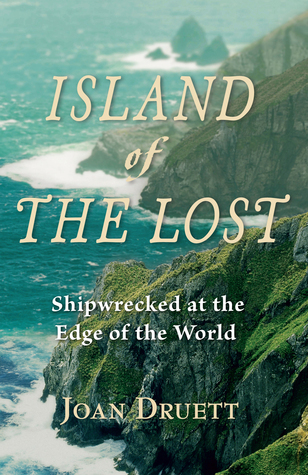
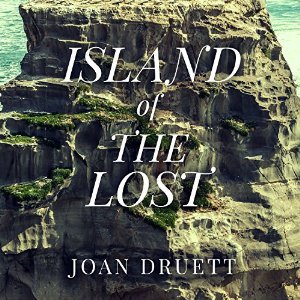
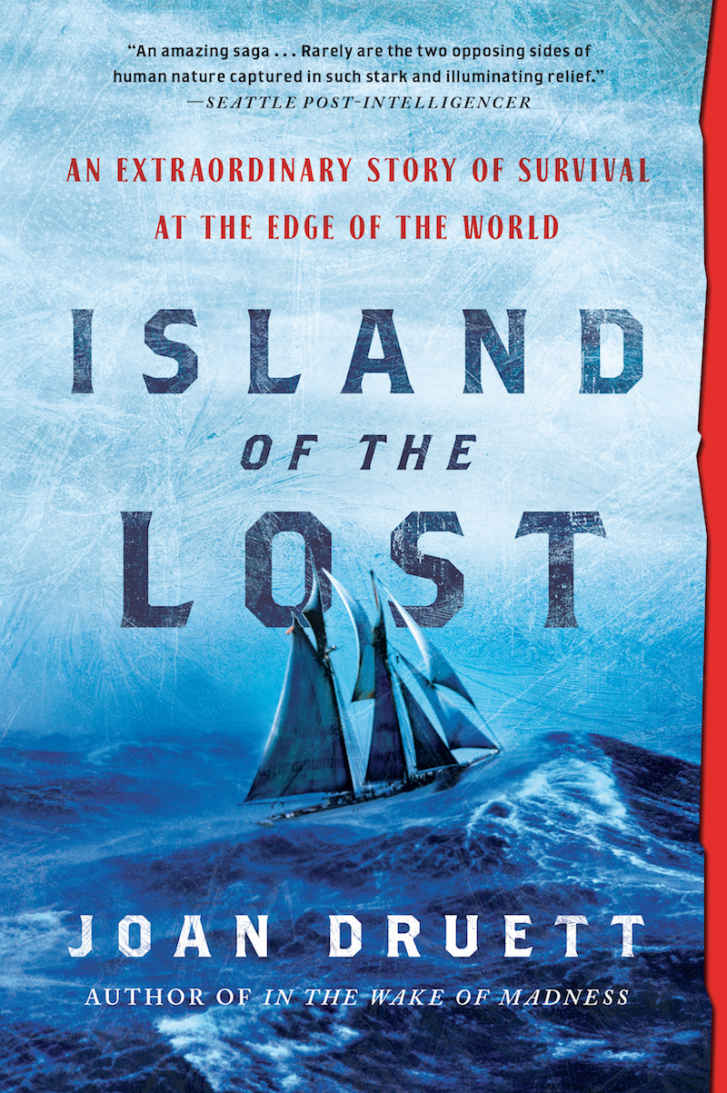
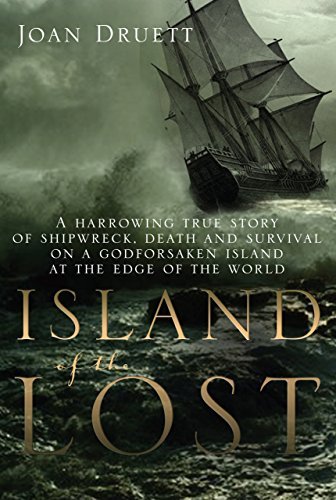





As someone who can't seem to get enough of reading about polar expeditions and stories of exploration in general (in any climate), I knew Empire of Ice and Stone would be a must-read for me as soon as I saw it. This is an incredible account of the Karluk's 1913 expedition to the Arctic and the many trials that plagued the men on this journey, along with successes and triumphs in a variety of forms.
What I liked: Buddy Levy's research for Empire of Ice and Stone is impeccable and he includes an incredibly thorough accounting of all components of the story, from backgrounds of prominent figures to the planning stages to the long, arduous journey itself. I thought Levy wove all of this information into a very coherent and engaging narrative that I found easy to follow along with. No matter how many polar or general exploration expeditions I read about, I will never fail to be dumbfounded by either the lack of planning or the response to the discovery of a problem as "eh, we'll be fine" that seems so common among these leaders (looking at you, Vilhjalmur Stefansson). I really enjoyed learning about Captain Bob Bartlett, and since I always love observing various leadership styles I was pleased to see that Levy highlighted this throughout the book. I also found myself fully invested in many of the people involved in these expedition because of how well Levy portrayed their personalities and actions while out on the ice, and this is part of what really made this book such a captivating story that made me feel as though I were out on the ice with them all (but not really, because that would suck, let's be honest).
What I didn't like: I don't really have any complaints! I thought this was really compelling, well-written and researched, and because of that I'm not sure what to say as a negative. The expedition itself is pretty long and not always the most exciting, so I could see things maybe dragging a little bit at times, but I didn't find this to be much of an issue.
Buy the book: Amazon | Bookshop.org
What I liked: First of all, I loved Preston's respect for Honduras, its people, culture, history, and archaeology and artifacts. It means a lot to me that he was careful to include the many multi-faceted components that surround an exploration of an ancient civilization in a region often neglected by the rest of the world. Preston also has a lot of great, vivid descriptions of the land and forest that brought everything to life and encouraged me to get online and look up more images of this region. He went into a lot of detail about the dangers of the area, from snakes, bugs, etc., and I think it’s safe to say that I should probably not plan a visit. There was also a bit of a medical issue regarding a parasite, leishmaniasis, that all of the explorers dealt with after the exploration that he went into a lot of depth about near the latter portion of the book. I found this section equally fascinating and horrifying. I appreciated his discussion about negative associations with the terms ”lost city," "discovery," etc. and how these are misleading and sometimes offensive topics to talk about when these cities have such long histories. Lastly, I really appreciated Preston's ‘can-do’ attitude and willingness to get out of his comfort zone and explore, as it really added some adventure and allowed him to get a closer look to better share with readers.
What I didn't like: I would’ve loved to explore the uncovered city site and discoveries more, as I felt the ratio of history/exploration/etc. was not equal to the amount of discussion on what was actually found. That being said, I also understand the limitations in writing about what’s there when research was still ongoing, and I wouldn’t say what was there was “lacking.” The formatting could also have been tightened up a bit and had less jumping around. I would also say that the “history” portion of the White City and previous attempts to “discover” it in the beginning half of the book leading up to Preston’s journey was rather long and, and interesting as some of this section was, could have been edited down a bit to keep the narrative flowing.
What I liked: First and foremost, I have to say how much I appreciated reading a book that covered this period of history in such detail and with such care, because the author is right in that most more readily available resources do not spend much time in this period. I’ve studied quite a bit over my years studying Classics, as he was one of those figures that particularly intrigued me, and I appreciated seeing this post-death situation in depth, including how his relationships with people impacted the conflict and how much his rule and influence had spread. I really liked how Romm formatted this book, focusing on key players as they fit into the narrative and influenced events after Alexander’s death. There was plenty of nuance available in analyzing these figures and the potential motivations or relationships at play that would impact actions. This was a particularly dramatic period of time–I mean, Ptolemy I literally stole Alexander’s funerary cart (with his body) on its way back to Macedonia and rerouted it to Egypt where Ptolemy decided to have him buried in Memphis for his own benefit–and it only gets crazier. This is a great book for concrete source material for research or educational purpose, but it also reads really easily and I think would be a very accessible read for anyone not in the Classics field.
What I didn't like: I don’t have too many complaints about this book, but I do think it was slightly repetitious at times. I’ve found it’s fairly common for historical nonfiction books to really hammer home certain points, but I still found it a bit repetitive to hear repeated comments about certain historical figures. There was also a lot of information given constantly, and I could see it being a little overmuch at times. There are a lot of moving parts at play to keep track of, so it was sometimes a little difficult to follow and keep track of things, but I have to give Romm credit for attempting to organize it as best as possible. Despite this being in the “didn’t like” section of this review, I still think it’s very accessible for everything that has to be covered!
This isn't a new release by any means, but I did read it recently
and was floored by how much I enjoyed it and took away from it. This
collection includes the essay "On Fairy-stories," the related short
story "Leaf by Niggle," the poem "Mythopoeia," and the poem "The
Homecoming of Beorhtnoth," which was about the Battle of Maldon from 991
AD.
On Fairy-stories and Leaf by Niggle are the two works from this collection that stood out to me the most, though I enjoyed all of them. On Fairy-stories is a really thoughtful and in-depth discussion of what people mean when they talk about 'fairy-stories' and 'fairies' in general. Tolkien's discussion first dives into understanding all of the different interpretations that exists and his statement on what a fairy story actually is, what it entails, and what can be expected from them. He also provides examples of common stories that are considered fairy-tales, but in actuality do not fit that specific category.
In addition to this discussion on what a fairy
story is, Tolkien also covers some more disputed topics such as what
age fairy stories are meant to be written or told for. In the present
day, we tend to associate fairy stories with children, but Tolkien
instead explains why they are not necessarily meant for children and
that they are, in fact, better understand and often enjoyed more by
adults.The other prominent aspect of this essay is Tolkien's discussion
on writing and fantasy in general, as well as types of prose that exist,
and I think anyone who writes or is interested in reading about the
craft of writing and constructing new worlds will take away a lot of
incredible valuable information from it.
I absolutely loved hearing Tolkien's thoughts on this topic and how much care he put into the entire essay. This is the first longer form piece of nonfiction that I've read from Tolkien and I've found myself enamored by his voice and method of writing. Of course, I've read The Lord of the Rings and associated books so I know that Tolkien has a wonderful narrative voice, but hearing his nonfiction was just as enlightening and compelling as any of his fiction. He has such a beautiful cadence to his writing as well that makes it easy to keep reading. If you are at all interested in fairy tales or stories, or simply a compelling discussion about people's perceptions versus reality, then I would encourage you to check out this essay.
My second favorite work is "Leaf by Niggle,"
which is a bit of an allegorical short story about a young artist who
wants to work on his art, but is surrounded by people who do not seem to
value or care about his art or drive to create it. Niggle was a
character that I felt I connected to a lot just from his introduction on
the first page, from his general personality to his constant focus on
completing mundane tasks that resulted in him never having time for his
own art. I won't go over the entire story, but suffice to say this was a
really enjoyable and enlightening tale that I think offers a lot of
meaning. I have seen mentioned that Niggle may be a sort of
Tolkien-insert, so I think that also offers an compelling insight as
well. Also, I have a weird love of trees and I think Tolkien does also,
so the tree in this book was a beautiful part of the story.
The remaining works "Mythopoeia" and "The Homecoming of Beorhtnoth" were beautiful in their own right, though I'll confess that I'm not sure I understand all elements of the former as much as I would lie, and I absolutely plan to do some re-reads of it in the future. Still, Tolkien's poetry is stunning and captivating and you can tell that there are so many layers to it. The Homecoming of is written in a play format and was more engaging that I might have expected, which led me to learning more about the Battle of Maldon than I ever would've learned otherwise, most likely.
Overall, it feels a bit odd to rate this one, but I'm still giving it five stars. This is a really beautiful, informative, and inspiring collection that demands a slow, contemplative reading of it (and some re-reads to take it in as much as possible, in my opinion!). For anyone who loves literature or reading some beautiful poetry or creative short stories, this is one I would absolutely recommend!
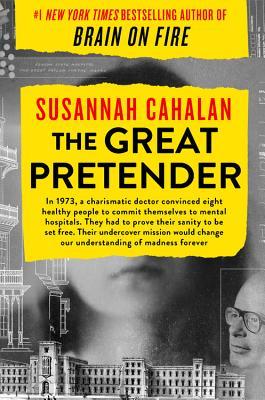 The Great Pretender: The Undercover Mission That Changed Our Understanding of Madness
The Great Pretender: The Undercover Mission That Changed Our Understanding of Madness